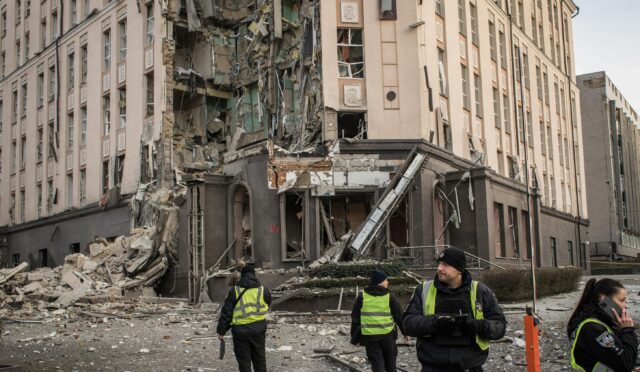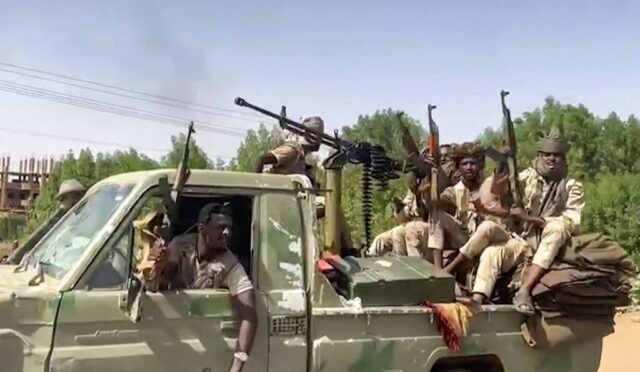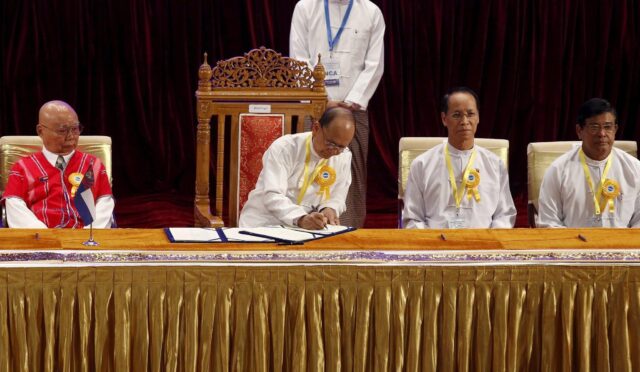Rapid Support Forces Withdraw from Khartoum
In a surprising admission, Mohamed Hamdan Daglo, the head of the Sudanese paramilitary group Rapid Support Forces (RSF), announced on Sunday that his forces had withdrawn from the capital city of Khartoum. This announcement came just three days after the RSF proclaimed that they would not retreat or surrender, despite the Sudanese army’s claims of having eradicated the last remnants of RSF presence in the city. Daglo emphasized that while they have left Khartoum, they intend to return with greater determination.
In a speech shared on social media, Daglo stated, “I confirm to you that we have indeed left Khartoum, but… we will return with even stronger determination.” This stark contrast in messaging highlights the ongoing tumultuous situation in Sudan, which has been marred by nearly two years of conflict.
Humanitarian Crisis Intensifies
The prolonged conflict has plunged the nation into what the United Nations describes as the world’s most severe hunger and displacement crisis. Disturbingly, over 12 million people have been displaced, tens of thousands have lost their lives, and a UN-supported assessment has declared famine conditions in certain regions of the country.
On this grim backdrop, Daglo claimed that any notion of negotiations with the army regarding a resolution to the conflict was misguided. “All those who think that there are negotiations or agreements in process with this diabolical movement are mistaken,” Daglo stated, indicating that the situation remains tense and primarily defined by military engagements.
Military Standoff Persists
Army chief Abdel Fattah al-Burhan reiterated his commitment to not backing down, asserting that the army’s recent successes in reclaiming key locations in Khartoum—including the presidential palace and the war-damaged airport—should signal their determination. He asserted, “We will neither forgive, nor compromise, nor negotiate,” framing the conflict as a fight for the complete eradication of the RSF presence in Sudan.
Despite the army’s recent advances, the country remains effectively split. The military holds significant power in the eastern and northern regions, while the RSF retains control over much of Darfur and parts of southern Sudan, emphasizing the ongoing division brought about by the conflict.
International Calls for Peace
In a show of solidarity, Pope Francis, who is currently recovering from a severe bout of pneumonia, called for immediate negotiations to address the dire situation in Sudan. While the United States and Saudi Arabia attempted to mediate early in the conflict, those efforts have failed as numerous ceasefires crumbled.
US Secretary of State Marco Rubio has expressed a renewed commitment to diplomatic efforts to resolve the war in Sudan. Rubio, who has engaged with international leaders including Kenya’s President William Ruto and Ethiopia’s Prime Minister Abiy Ahmed, underscored the urgency for a resolution and highlighted past efforts by former Secretary of State Antony Blinken, who faced disappointment over the lack of progress.
Rising Violence Amid Tactical Shifts
The RSF has experienced significant setbacks over the past year, leading the Sudanese army to push towards Khartoum. Analysts have noted that the RSF’s difficulties stem from a combination of strategic mistakes, internal conflicts, and decreased resources. Yet, reports have emerged of RSF drone attacks for the first time in the conflict, with the army claiming to have successfully downed these drones.
In a separate incident on Sunday, an RSF strike in El-Obeid city tragically resulted in the death of a child and injuries to eight others. This reflects the ongoing violence that continues to wreak havoc across the country, particularly following the military’s February announcement regarding the breaking of an RSF siege in North Kordofan.
International Arms Monitoring
Amidst the conflict, a UN panel of experts has put forth credible allegations suggesting that the United Arab Emirates is providing military support to the RSF through Chad, complicating the already volatile situation in Sudan. This revelation underscores the international dimensions of the conflict and the challenges faced in achieving a comprehensive resolution.
As the fighting persists and humanitarian distress deepens, the calls for effective mediation and peaceful dialogues become ever more urgent, highlighting a critical need for renewed efforts to bring an end to the hostilities.







